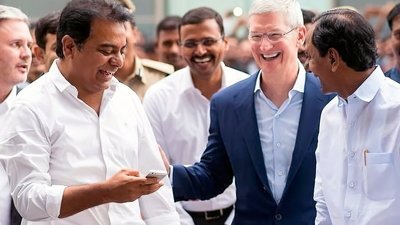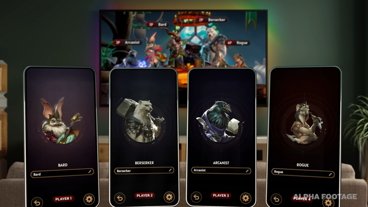In a discussion with Business Week, Julius Genachowski said all signs point to there being not enough spectrum available for wireless services in the future. As a result, the FCC will have to explore alternative methods to accommodate devices like the iPhone.
"We've been spending time on long-term spectrum policy because the data suggest we face a spectrum gap," he said. "The demands that are being created by the iPhone and other mobile broadband technologies threaten to outstrip the amount of spectrum available for commercial mobile, and it's important for the country that we get long-term planning right because it takes time to identify spectrum and put it on the market. We're looking at potential innovations in spectrum policy, such as secondary licensing for spectrum, and other, more creative ideas for unlicensed spectrum."
Genachowski is a strong proponent of Net neutrality and mobile devices like the iPhone. In the past, he has specifically cited the iPhone as a "path-breaking" device that has "enabled millions of us to carry the Internet in our pockets and purses."
Under Genachowski's direction, the FCC voted unanimously on Oct. 22 to pursue his proposed six principles of freedom for Net neutrality. They are:
- Freedom to access legal content
- Freedom to use applications of the users' choice
- Freedom to attach personal devices to connections in users' homes
- Freedom to obtain service plan information
- Non-discrimination: Broadband providers cannot discriminate against particular Internet content or applications
- Transparency: Providers must be transparent about network management practices
The FCC chairman also told BusinessWeek that he is an avid iPhone user. During his interview, he charged his handset and discussed his favorite app, an astronomy application called Star Walk. Genachowski said he has used it to teach his 5-year-old daughter.
Under Genachowski's watch, the FCC has taken an active role in the wireless market. Under pressure from the government, AT&T agreed to allow Voice over IP calls via its 3G network. It also inquired over the non-acceptance of the Google Voice application in the App Store.
The FCC has also signaled that it wants to increase wireless carrier competition, and increase the availability of exclusive smartphones like the iPhone in rural markets where providers like AT&T do not offer service.
Earlier this month, AT&T and a group of U.S. lawmakers asked the FCC to investigate Google Voice for blocking calls to rural areas. The telephony service currently has the ability to block calls to rural areas where it is more expensive to connect. Federal law prohibits traditional U.S. carriers, like AT&T, from blocking such calls.
 Sam Oliver
Sam Oliver






-m.jpg)






 Amber Neely
Amber Neely

 Malcolm Owen
Malcolm Owen
 William Gallagher
William Gallagher

 Christine McKee
Christine McKee






-m.jpg)



86 Comments
No kidding! The iPhone changed the whole game - including the carrier game.
Under Genachowski's direction, the FCC voted unanimously on Oct. 22 to pursue his proposed six principles of freedom for Net neutrality. They are:
Freedom to access legal content
Freedom to use applications of the users' choice
Freedom to attach personal devices to connections in users' homes
Freedom to obtain service plan information
Non-discrimination: Broadband providers cannot discriminate against particular Internet content or applications
Transparency: Providers must be transparent about network management practices
It's nice to see this set out here. Lots of people seem to equate Net Neutrality with unlimited usage at a particular bandwidth, which is just wrong and always frustrating to read. In particular people seem to think that Net Neutrality is going to save their iPhone unlimited data plans, which it won't.
I would prefer to see less bandwidth rather than more, I can't believe it's safe to surround ourselves with ever-increasing amounts of radiation like this.
I'd rather see people access heavy stuff like movies etc by wire ( not even home wi-fi ) and synch to their mobile devices than fill the air with it.
What about those frequencies left from TV's move to HD?
No kidding! The iPhone changed the whole game - including the carrier game.
The article is a bit slanted towards the iPhone. This is what was really said.
http://www.twice.com/article/357112-...ectrum_Gap.php
"We are fast entering a world where mass-market mobile devices consume thousands of megabytes each month," he said in a speech to attendees. "So we must ask: What happens when every mobile user has an iPhone, a Palm Pre, a Blackberry Tour or whatever the next device is? What happens when we quadruple the number of subscribers with mobile broadband on their laptops or netbooks?"